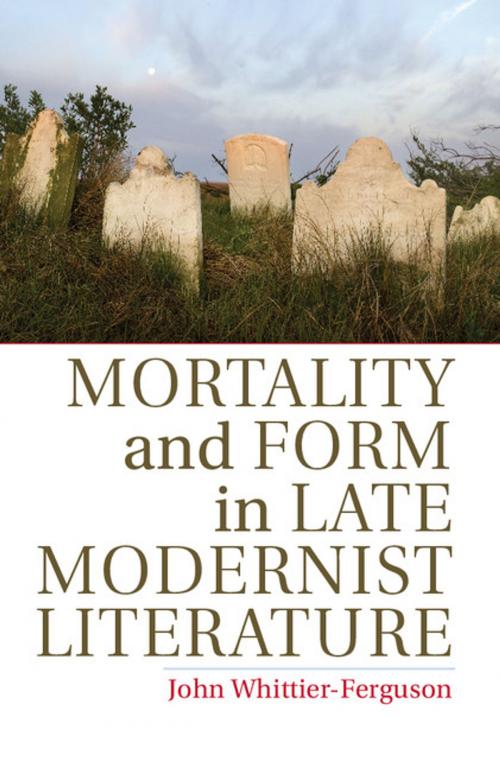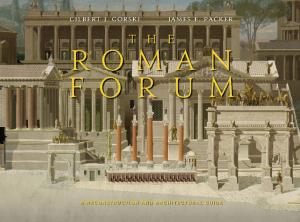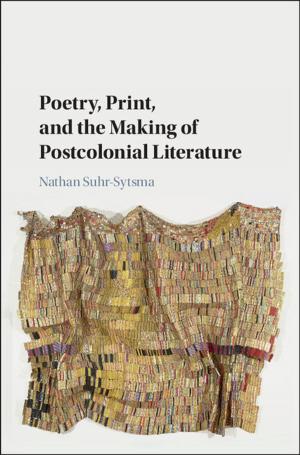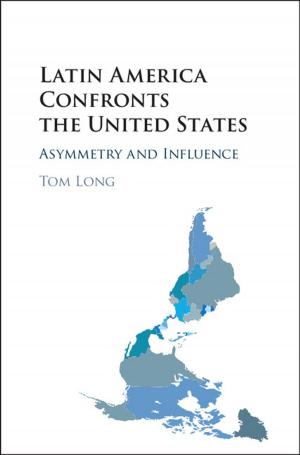Mortality and Form in Late Modernist Literature
Fiction & Literature, Literary Theory & Criticism, Poetry History & Criticism, British| Author: | John Whittier-Ferguson | ISBN: | 9781316054512 |
| Publisher: | Cambridge University Press | Publication: | October 27, 2014 |
| Imprint: | Cambridge University Press | Language: | English |
| Author: | John Whittier-Ferguson |
| ISBN: | 9781316054512 |
| Publisher: | Cambridge University Press |
| Publication: | October 27, 2014 |
| Imprint: | Cambridge University Press |
| Language: | English |
This wide-ranging study of the late poetry and prose of Virginia Woolf, T. S. Eliot, Gertrude Stein, and Wyndham Lewis brings together works from the 1930s and 1940s - writings composed by authors self-consciously entering middle to old age and living through years when civilization seemed intent on tearing itself to pieces for the second time in their adult lives. Profoundly revising their earlier work, these artists asked how their writing might prove significant in a time that Woolf described, in a diary entry from 1938, as '1914 but without even the illusion of 1914. All slipping consciously into a pit'. This late modern writing explores mortality, the frailties of culture, and the potential consolations and culpabilities of aesthetic form. Such writing is at times horrifying and objectionable and at others deeply moving, different from the earlier works which first won these writers their fame.
This wide-ranging study of the late poetry and prose of Virginia Woolf, T. S. Eliot, Gertrude Stein, and Wyndham Lewis brings together works from the 1930s and 1940s - writings composed by authors self-consciously entering middle to old age and living through years when civilization seemed intent on tearing itself to pieces for the second time in their adult lives. Profoundly revising their earlier work, these artists asked how their writing might prove significant in a time that Woolf described, in a diary entry from 1938, as '1914 but without even the illusion of 1914. All slipping consciously into a pit'. This late modern writing explores mortality, the frailties of culture, and the potential consolations and culpabilities of aesthetic form. Such writing is at times horrifying and objectionable and at others deeply moving, different from the earlier works which first won these writers their fame.















